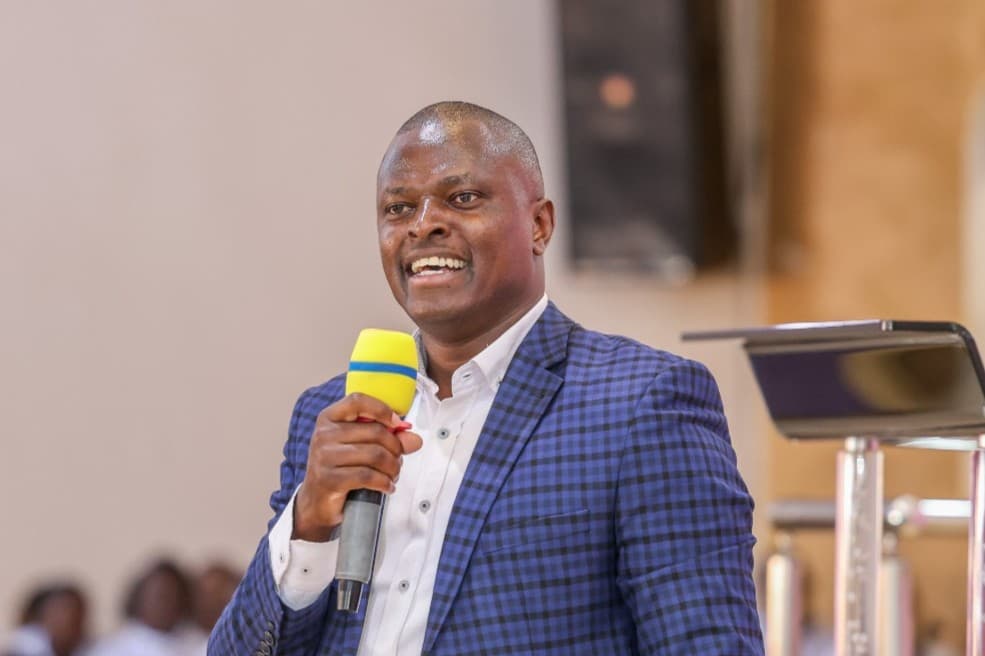We're loading the full news article for you. This includes the article content, images, author information, and related articles.
Kiharu MP Ndindi Nyoro has challenged the government's plan to toll the Nairobi-Nakuru-Mau Summit highway, arguing the Public-Private Partnership model burdens Kenyans and inflates costs for a critical economic corridor.

Kiharu Member of Parliament Ndindi Nyoro has publicly opposed the planned tolling of the Nairobi-Nakuru-Mau Summit highway, raising concerns over the project's financing structure and its KSh 175 billion price tag. In statements made in August and September 2025, Nyoro argued that the cost, translating to approximately KSh 1 billion per kilometre, is excessive and called on the government to explore alternative, less burdensome funding mechanisms. "This road will cost Kenyans over Sh175 billion... Why can't the government look at other avenues of raising money?" Nyoro questioned on August 13, 2025.
His primary objection targets the Public-Private Partnership (PPP) model selected for the project, which involves a consortium of China Road and Bridge Corporation (CRBC) and Kenya's National Social Security Fund (NSSF). Nyoro contends that using workers' pension funds from the NSSF makes the project a public, not a private, investment. "In whatever we are calling PPPs, they are not really private. They are mostly entirely public. The main investor in this case is the National Social Security Fund," he stated, arguing it is an inappropriate use of retirement savings.
A central theme of Nyoro's opposition is the principle of 'double taxation'. He has repeatedly argued that Kenyan motorists already contribute to road maintenance through the Fuel Levy, and imposing additional toll fees constitutes an unfair second charge. "Motorists will be made to pay for fuel, pay the [road maintenance] levy, and again pay an extra cost to use the road," he explained. This, he warns, will inevitably increase the cost of doing business, with transport operators passing the expense on to consumers, thereby inflating the price of goods and services.
The highway is a vital part of the Northern Corridor, a trade route essential for Kenya and landlocked neighbours like Uganda, Rwanda, and South Sudan. Nyoro has cautioned that making this key artery a toll road could harm Kenya's competitiveness as a regional logistics hub, potentially driving transit cargo to alternative routes through other countries.
The project involves the expansion and upgrading of the 175-kilometre Rironi-Mau Summit road and the rehabilitation of the 58-kilometre Rironi-Naivasha section. In October 2025, the Kenya National Highways Authority (KeNHA) announced it had selected the CRBC-NSSF consortium as the preferred proponent for the 30-year concession. This decision followed the cancellation of a previous, more expensive deal with a French-led consortium, which the current administration deemed unaffordable at a reported cost of nearly KSh 180 billion.
Under the new arrangement, the project's cost is estimated to be between KSh 90 billion and KSh 175 billion, a figure Nyoro still finds questionable. KeNHA has indicated a proposed base toll rate of KSh 8 per kilometre for passenger vehicles, which it argued was more affordable than the competing bid. The project is intended to alleviate severe congestion, reduce travel times, and improve safety on one of the nation's most critical highways.
Government bodies, including the Public-Private Partnerships (PPP) Directorate, have defended the model as a necessary strategy to fund major infrastructure projects without overburdening the national budget through direct borrowing. Officials argue that tolling ensures that the users of the highway contribute directly to its construction and long-term maintenance, a globally recognized practice for sustainable infrastructure development.
As an alternative, Nyoro has suggested that the government could finance the road expansion by selling a portion of its assets, such as its 35% stake in Safaricom. He proposed that selling just 10% of these shares could raise as much as KSh 100 billion, enough to fund the project without resorting to tolls or using pension funds. "The expansion of these major roads is long overdue. But it must be done in the most optimal way — fully funded by the government and without tolling," he asserted on August 12, 2025.
Keep the conversation in one place—threads here stay linked to the story and in the forums.
Sign in to start a discussion
Start a conversation about this story and keep it linked here.
Other hot threads
E-sports and Gaming Community in Kenya
Active 9 months ago
The Role of Technology in Modern Agriculture (AgriTech)
Active 9 months ago
Popular Recreational Activities Across Counties
Active 9 months ago
Investing in Youth Sports Development Programs
Active 9 months ago
Key figures and persons of interest featured in this article